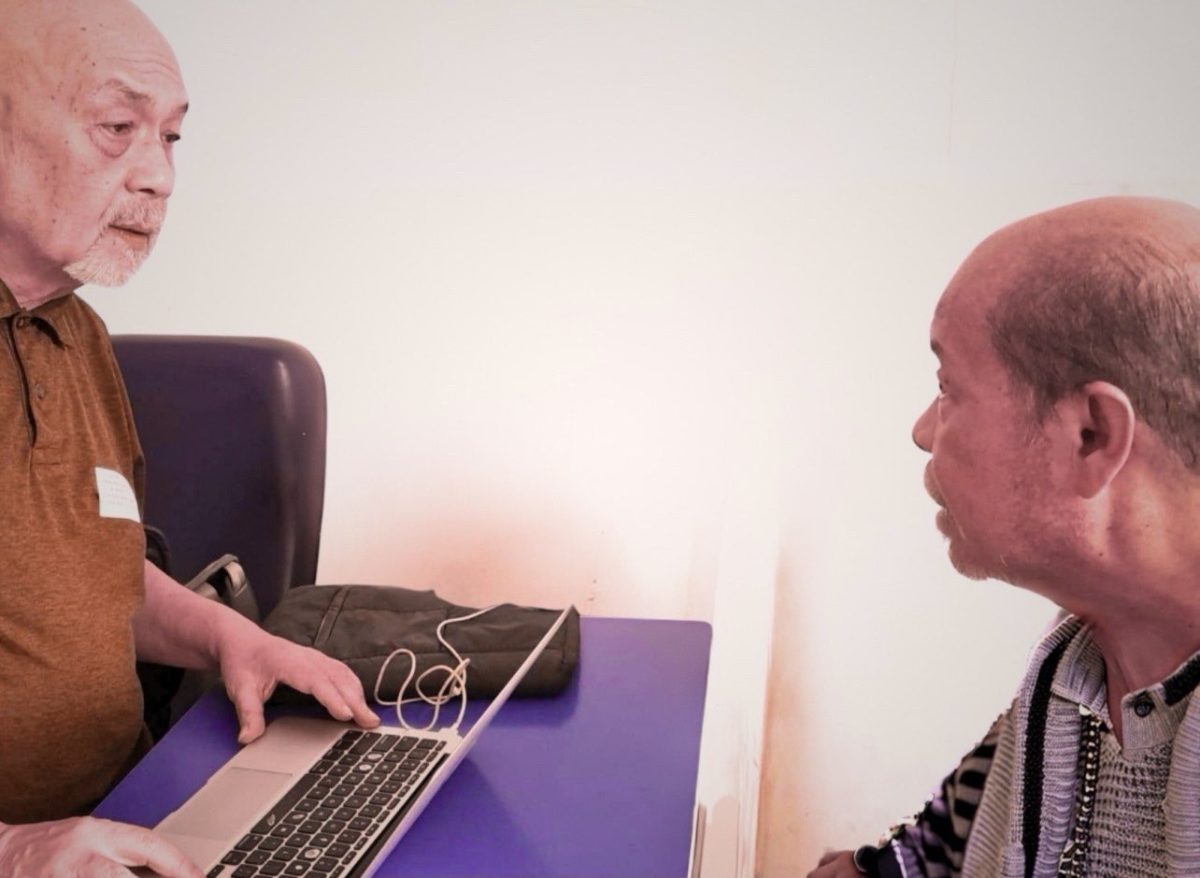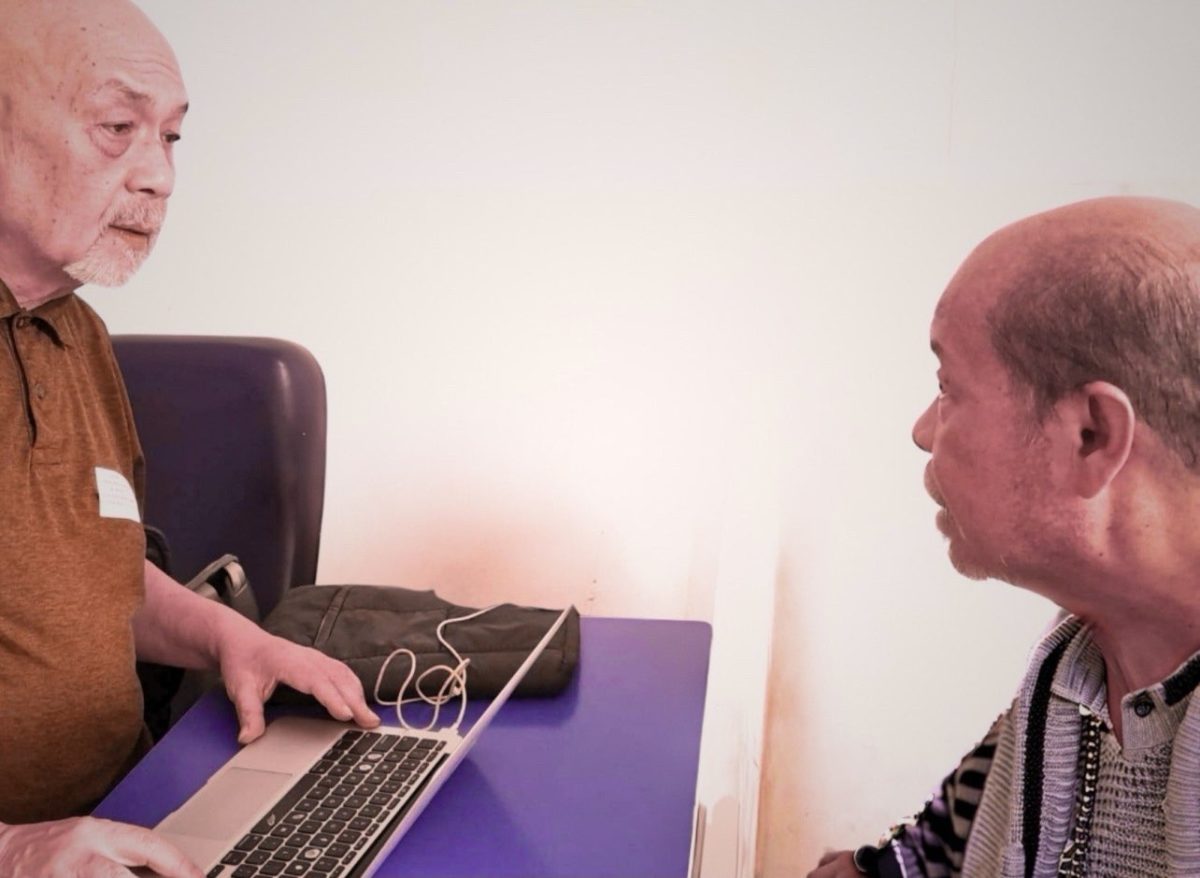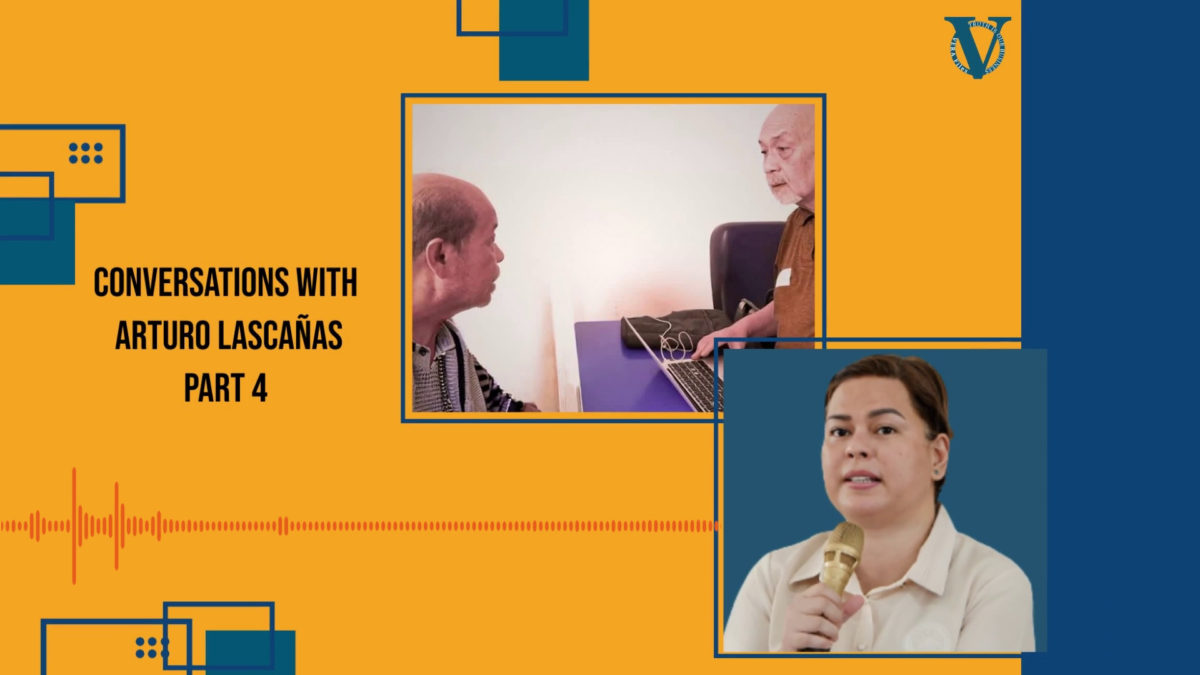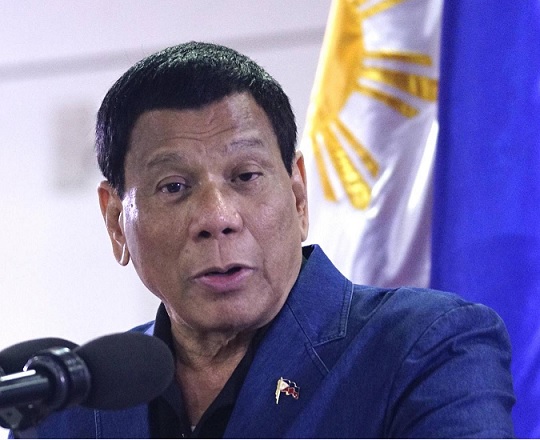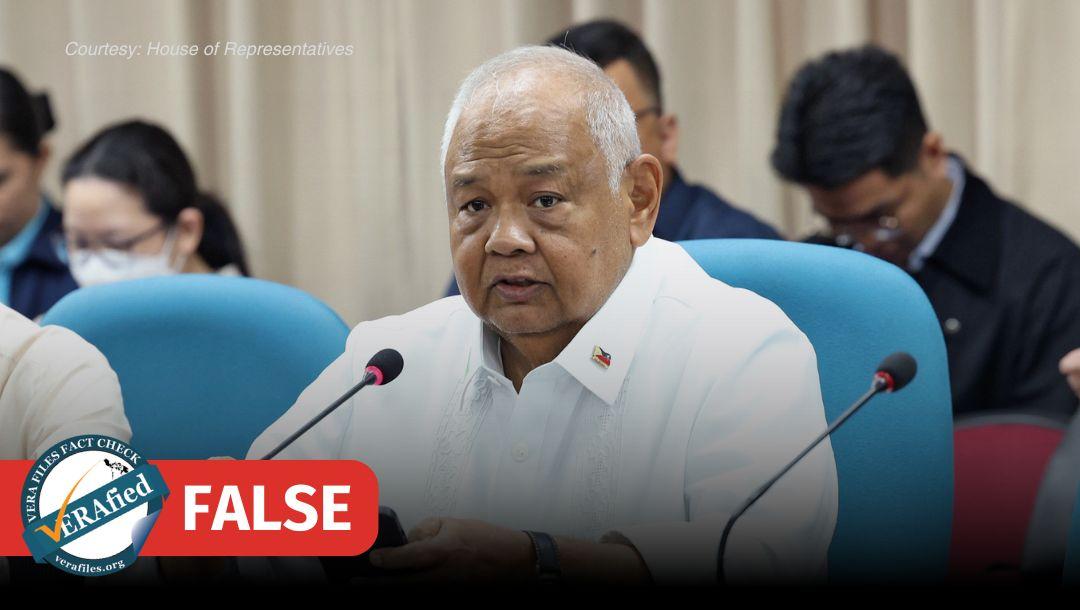To be a major assassin in the Davao Death Squad, Rodrigo Duterte insisted on one requirement: omerta.
Arturo Lascañas had long abandoned that mafiosi-like code of silence when he testified at the Senate, and later in a pre-trial hearing of the International Criminal Court (ICC) for Duterte’s alleged crimes against humanity.
In a job that entailed constant meetings with Duterte and his cronies, to see and hear no evil was indispensable. Certainly there were moments when, overwhelmed with the influx of information they were seeing about the boss whom every DDS killer called Superman, there was temptation to doubt and ask questions.
Superman was paying them generously. He always assured his major DDS players that he had at his disposal huge amounts of intelligence funds, Lascañas had sworn in his affidavit submitted to the ICC. But killer-colleagues immediately shoved and warned that asking probing questions would mean death.
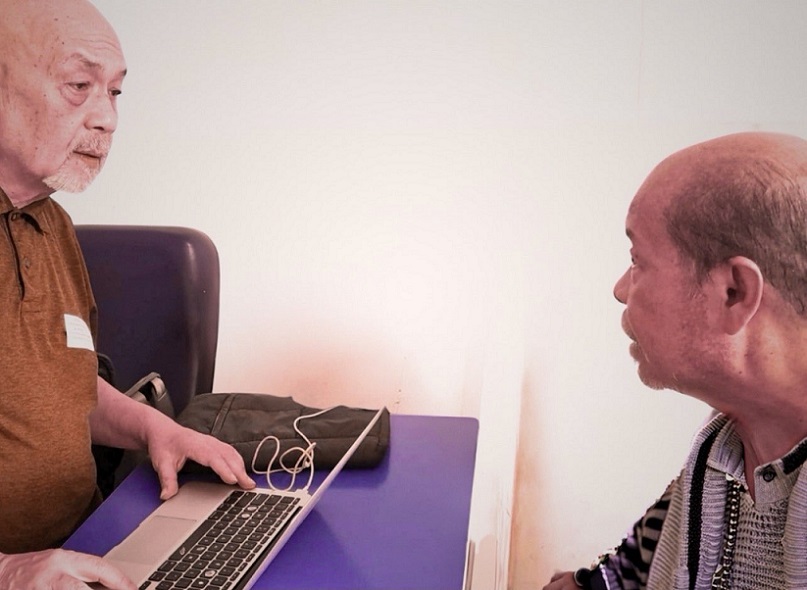
VERA Files columnist Antonio Montalvan II (left) interviews self-confessed member of Duterte’s Davao Death Squad, Arturo Lascañas Nov. 17, 2023.
Did Superman own a shabu laboratory, or at least had access to one? Lascañas has confirmed it. “That’s correct, that’s correct.”
“I have seen the [Barangay] Dumoy shabu laboratory for several times because I was instructed by Mayor Duterte before, with Sonny Buenaventura, to escort [shipments from] an alleged canned fish factory deliver to the Toril Fishport Complex… a canned fish factory, allegedly for export to Malaysia, but it was all a shabu laboratory,” he said in an interview outside the Philippines on Nov. 17.
Fish factory in disguise
“I always [saw] Michael Yang outside [the canned fish factory] when we talked about the extortion of the traffic police in the Toril area, in their [delivery vans] deliver[ing] to the Toril Fishport,” he recalled. “We delivered to the Toril Fishport more than three times. It was all drugs… shabu.”
Lascañas knew that this was a factory in disguise. He had spoken to the owner of the shipping fleet, a Mr. Cascabel, whose ships were rented to bring the “exports” to Malaysia. Cascabel told him: “Tur, this is from the drug shabu laboratory of Duterte, very sensitive.”
Remember Michael Yang? Memories do not favor him with a rosy picture. In November 2015, before Duterte became president, he visited Yang’s company headquarters in Xiamen, China. In January 2018, Duterte appointed Yang as presidential economic adviser, despite his being a non-Filipino. Yang’s investments expanded during the Duterte presidency. It was Yang who introduced Pharmally Pharmaceutical, which bagged multimillion-peso pandemic contracts, to Duterte.
In 2017, documents from the Philippine National Police Drug Enforcement Group (PDEG) detailed Yang’s and Allan Lim’s links to illegal drugs. But Duterte turned the tables on the whistleblower, Eduardo Acierto, former deputy director of PDEG. Yang never figured, not even once, in Duterte’s drug matrices written in cartolinas that he presented to the media.
Lascañas, however, has more morbid tales. He recalled in his affidavit that sometime in December 2004, the shabu laboratory was raided by elements of the Philippine Drug Enforcement Agency (PDEA) Region 10 (Northern Mindanao) under then-superintendent Wilkins Villanueva. “Hundreds of kilos of high grade shabu were recovered inside the laboratory; six Chinese nationals were killed during the raid.” Eleven other Chinese nationals were arrested. Superman feared that the 11 might squeal.
An arrangement was reached with PDEA to hand over the 11 Chinese to the team of Lascañas. Superman’s instruction was clear: “Eliminate them all, and dispose them in a very clean manner, that no remains or traces of their bodies could be recovered.”
“Duterte ordered us, me and Wilkins Villanueva, to kill all the workers and the chemists of the Davao shabu laboratory. And I can pinpoint even up to now where I buried their bodies,” Lascañas said during the interview.
‘Clean up and dispose’
It was a classic dead-men-tell-no-tales operation. The date was Dec. 31, 2004. Lascañas recounted that they hogtied and blindfolded the 11 Chinese nationals, four of whom were women, and brought them to their main killing field and mass grave called Laud Quarry, a 20-hectare property in Barangay Ma-a, Davao City that was named after a policeman who owned it.
While there, Lascañas received a phone call from Superman, reiterating his order to “clean up and dispose” of the 11 Chinese nationals. “We prepared a common grave that was 8-feet deep, 6 feet in length and 4 feet in width. The first Chinese was shot twice in the head using a caliber-22 pistol with silencer. I shot the rest one by one twice in the head.
They left the quarry at past 4 a.m.. It was New Year’s Day and they wanted to go home to their families. That afternoon, Superman sent them “five bundles of fresh money in 1,000-peso denominations, [at] P100,000 per bundle.” The following day, Superman’s driver and security man, Sonny Buenaventura, phoned him to say that Superman will increase his monthly allowance to P50,000 per month. He had accomplished a job well done. He killed well and kept Duterte’s omerta.
Lascañas said he had kept his silence for long about the shabu laboratory. By then he had doubts and suspicions about Duterte’s sincerity on his so-called campaign against illegal drug.
For example, the “canned fish factory” was not alone. “There is another shabu laboratory; it was in Barangay Obrero.”
Who owned, who operated the Obrero factory? “In Obrero is was Michael Yang… and Charlie Tan.”
Then, there was a third one, inside Green Heights Subdivision on Buhangin Diversion Road. The existence of these shabu laboratories was part of the code of silence.
‘He was part of it’
Was Superman aware of these shabu laboratories? “Of course!” he replied. “Nothing is established in Davao City without the blessings of Rodrigo Roa Duterte.”
But how did the Yang-Duterte association begin? Here, Lascañas was very categorical in his answer: “Because of Sammy Uy.”
“Sammy Uy is one of the responsible person[s] why Michael Yang entered Davao City with his shabu chemist. [Yang] established the DCLA [mall] as a front, as a front. Part of the building was owned by Sammy Uy.”
In his affidavit to the ICC, Lascañas described Uy as “Yang’s sponsor and patron in Davao City, and the bosom friend of [former] Davao City Mayor Rodrigo Roa Duterte.”
“It was Uy who supervised the construction of the canned fish factory. I saw him there several times during the construction stage.”
In the same affidavit, Lascañas recalled an incident when Buenaventura referred angrily to Uy as the “gambling and shabu mafia of Davao City.”
I asked Lascañas what that meant. He said that in Davao City, Uy financed the illegal numbers games known as “Last Two” and “High-Low.” Was Superman aware of it, I asked? “Not only aware; Superman was part of it.”
Asked if his information were based on rumors, Lascañas said: “I stand [by] it. Personally, I’m very much prepared to face them face-to-face… because I’m a Filipino, I have to defend my country, not this kind of criminals, especially Duterte. I will fight it until the last of my breath.”
He then challenged Duterte: “If he was telling the truth, and against my words, why not face me face-to-face in the ICC? He’s a lawyer; I’m not a lawyer. I’m just an investigator, but I can confront him. I can prove my case.”
“My friend, I’m sorry, but I have to defend our country, not you.”
Lascañas minces no words: “Duterte is the lord of all drug lords in the Southern Philippines.. He is the most dangerous person in the southern hemisphere.”
On November 11, 2020, Arturo Lascañas, signed the ICC’s Third Agreement on Limited Use of Information. The agreement gives Lascañas a degree of immunity, that the ICC cannot prosecute him for having participated in the extrajudicial killings in Davao city under the Duterte family. That means Duterte himself or his alter egos cannot file a case in the ICC against Lascañas. It is a first in Philippine history for international criminal law.
